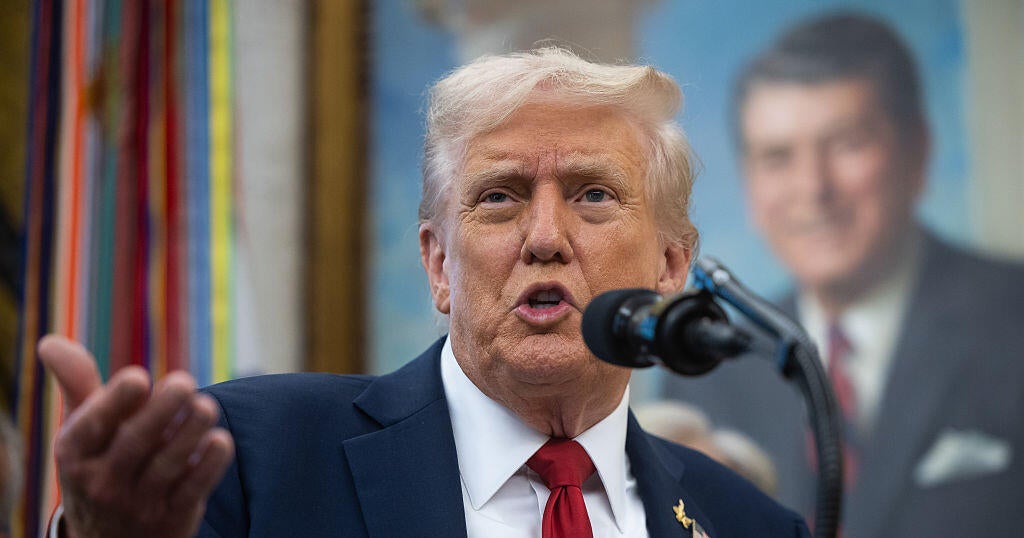
Since President Trump resumed his tenure in the White House this January, his administration has launched a vigorous campaign against cities, counties, and states refusing to align with its mass deportation agenda. These so-called “sanctuary” jurisdictions have been threatened with lawsuits, reductions in federal funding, and various penalties designed to force compliance.
The administration has mobilized Immigration and Customs Enforcement (ICE) and other federal agencies to increase deportation efforts in sanctuary cities like Chicago and Los Angeles. This surge in federal immigration raids has ignited significant protests and confrontations across the country.
However, nearly eight months into Trump’s second administration, these attempts to pressure sanctuary jurisdictions have produced minimal results. Most of the lawsuits remain unresolved, and local Democratic leaders continue to reinforce policies that limit or prohibit collaboration with federal immigration authorities.
The Justice Department has only reported one instance where a jurisdiction—Louisville, Kentucky—has rescinded its sanctuary policies in response to legal threats. Nevada’s Republican governor also recently pledged to cooperate with federal authorities after his state was identified as a sanctuary jurisdiction. Meanwhile, efforts to cut federal funds to sanctuary areas have been thwarted by federal courts.
More than a dozen lawsuits have been filed against Democratic-led states, counties, and cities since Trump took office, according to a CBS News review of court filings. These lawsuits target major urban centers like New York City, Los Angeles, Boston, and Denver, as well as smaller jurisdictions such as Rochester, New York, and various cities in New Jersey. States like Illinois, Minnesota, New York, and Colorado have also been named in these legal actions.
The Trump administration contends that local sanctuary policies impede the federal government’s ability to enforce immigration laws and violate the supremacy clause of the U.S. Constitution, which asserts federal law takes precedence over state law. Although there is no single definition of “sanctuary” policies, they generally restrict or forbid cooperation between local law enforcement and federal immigration agencies, including notifying ICE when noncitizens are released from incarceration.
Targeted jurisdictions have strongly defended their policies in court, citing the 10th Amendment’s anti-commandeering doctrine that prevents the federal government from compelling state or local officials to enforce federal laws. Jersey City, for instance, argued in a motion this summer that the Trump administration’s actions are an attempt to force local authorities to implement federal law, which is expressly prohibited.
Currently, the majority of the lawsuits initiated by the Trump administration against sanctuary jurisdictions are still pending in federal courts. Notably, a federal judge dismissed the administration’s lawsuit against Illinois and Cook County this past summer.
The Trump administration has repeatedly issued warnings about potential legal action against other jurisdictions. In August, it published a list of nearly 40 states, cities, and counties identified as impeding federal immigration enforcement. Attorney General Pam Bondi sent letters to nearly all localities on that list, demanding explanations on how they planned to dismantle their sanctuary policies.
The Department of Homeland Security escalated its efforts earlier this month by notifying California, New York, and Illinois that their refusal to comply with ICE detainer requests could lead to federal legal action. These requests ask local law enforcement to hold noncitizen detainees slated for release until ICE can detain them.
The Justice Department has indicated it may update its list of sanctuary jurisdictions in the future, adding new areas and removing those that have changed their policies. Just last week, Nevada became the first jurisdiction to be removed from this list after the state’s Republican governor signed a memorandum of understanding with the Justice Department, pledging state cooperation with federal immigration authorities.
Louisville, Kentucky, stands as the sole jurisdiction to change its policies following a written warning from Bondi’s office in June. The city’s Democratic mayor, Craig Greenberg, agreed to amend the policies in July with the understanding that Louisville would then be removed from the sanctuary list.
A Department of Justice spokesperson confirmed that no other jurisdiction has yielded to similar pressure and declined to comment on future actions the administration may pursue. Democratic New York City Mayor Eric Adams has suggested “tweaking” the city’s sanctuary laws in light of the Trump administration’s lawsuit, but this proposal has faced stiff opposition in the City Council.
Several federal agencies, including the Departments of Justice and Homeland Security, have attempted to withhold funding from sanctuary jurisdictions, citing executive orders from Trump. These funding cuts target federal programs that support law enforcement and community policing, such as Byrne Justice Assistance grants and Community Oriented Policing Services grants.
In February, 16 Democratic cities and counties, including San Francisco and Seattle, filed a lawsuit against the Trump administration to challenge these funding cuts. Federal Judge William Orrick ruled in April against the administration, blocking it from taking any action to withhold federal funds from these jurisdictions. In September, he expanded this order to prevent the administration from withholding funds from over 30 jurisdictions, including Los Angeles.
Another federal judge, William Smith, ruled in September that it is unconstitutional for the Trump administration to condition certain grants from the Federal Emergency Management Agency on states cooperating with federal immigration officials. As a result, the administration’s efforts to cut funding have stalled, and the Justice Department has appealed the ruling from San Francisco.
The controversy surrounding sanctuary policies has fueled a longstanding political divide in the U.S. Advocates argue that these policies foster community trust in local law enforcement, allowing immigrants to report crimes without fear of deportation. Conversely, opponents claim that sanctuary policies obstruct federal immigration law enforcement and undermine public safety by preventing ICE from arresting noncitizens charged with crimes in local jails.
Former Border Patrol Deputy Chief Matt Hudak contends that sanctuary policies create “dark spaces” that can be exploited by criminal organizations, posing risks to both law enforcement and the public.
Denver’s Democratic Mayor Mike Johnson has refuted claims that sanctuary policies endanger public safety, stating that the city has successfully combated gangs like MS-13. Johnson emphasized that Denver is not a sanctuary city, asserting, “We do not provide sanctuary or safe harbor to folks who have committed violent crimes or have broken any local laws.” He characterized the Trump administration’s legal actions as “political theater,” firmly asserting the city’s commitment to public safety.


